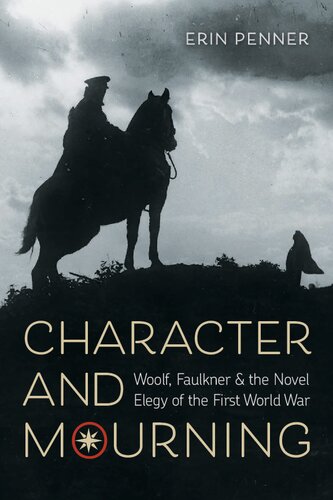

Most ebook files are in PDF format, so you can easily read them using various software such as Foxit Reader or directly on the Google Chrome browser.
Some ebook files are released by publishers in other formats such as .awz, .mobi, .epub, .fb2, etc. You may need to install specific software to read these formats on mobile/PC, such as Calibre.
Please read the tutorial at this link: https://ebookbell.com/faq
We offer FREE conversion to the popular formats you request; however, this may take some time. Therefore, right after payment, please email us, and we will try to provide the service as quickly as possible.
For some exceptional file formats or broken links (if any), please refrain from opening any disputes. Instead, email us first, and we will try to assist within a maximum of 6 hours.
EbookBell Team

0.0
0 reviewsIn response to the devastating trauma of World War I, British and American authors wrote about grief. The need to articulate loss inspired moving novels by Virginia Woolf and William Faulkner. Woolf criticized the role of Britain in the "war to end all wars," and Faulkner recognized in postwar France a devastation of land and people he found familiar from his life in a Mississippi still recovering from the American Civil War. In Character and Mourning, Erin Penner shows how these two modernist novelists took on the challenge of rewriting the literature of mourning for a new and difficult era.
Faulkner and Woolf address the massive war losses from the perspective of the noncombatant, thus reimagining modern mourning. By refusing to let war poets dominate the larger cultural portrait of the postwar period, these novelists negotiated a relationship between soldiers and civilians―a relationship that was crucial once the war had ended. Highlighting their sustained attention to elegiac reinvention over the course of their writing careers―from Jacob’s Room to The Waves, from The Sound and the Fury to Go Down, Moses―Penner moves beyond biographical and stylistic differences to recognize Faulkner and Woolf’s shared role in reshaping elegiac literature in the period following the First World War.